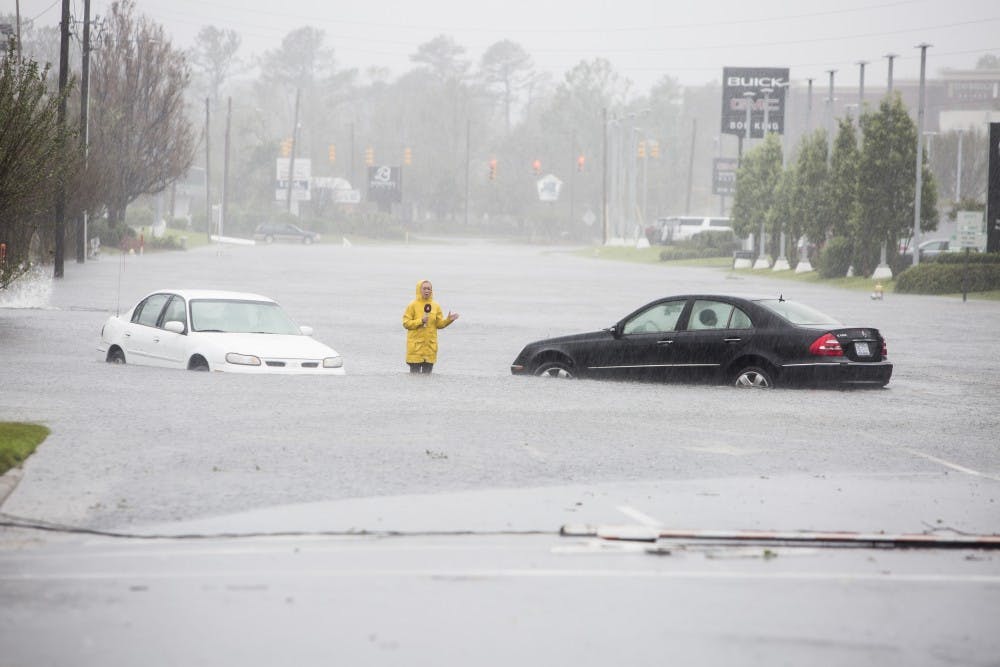When Hurricane Florence hit the East Coast, it moved slowly, dropping trillions of gallons of water on North Carolina causing massive wastewater overflow in towns like Benson.
According to the Town of Benson's Sept. 18 press release, 300,000 gallons of untreated wastewater were discharged into the Neuse River Basin between Sept. 13 and Sept. 18. The discharge was caused by heavy flooding from Hurricane Florence that infiltrated the town’s wastewater system within 72 hours.
The system is permitted to treat a maximum of 1.9 million gallons of water. During the heaviest rainfall, 4 million gallons of water entered the system.
The discharge also entered the Neuse River Basin, which contains the town of 3,600.
Bridget Munger, a public information officer at the N.C. Department of Environmental Quality, said that the discharge of organic matter into waterways can have harmful impacts, including fish kills and algal bloom.
Benson was not the only place in the state to experience discharge. Munger said Southside Wastewater Treatment Plant, located just south of Wilmington, discharged 5.25 million gallons of partially treated water.
While the volume of discharge is alarming, Munger said the dilution factor from the heavy rainfall helped to reduce the damage.
“You have such a high volume of rainwater and storm surge coming in that will dilute some of these spills, so the immediate impact will not be as severe,” Munger said. “By no structure of the imagination is that saying it’s not a problem to have a spill, but you do have a factor with a huge amount of rainwater that will dilute some of the harmful impact.”
Munger said the amount of rainwater may help to prevent significant algal bloom that could pose a threat to the environment and to human health. The harmful algae is a type the DEQ specifically advises civilians to avoid.




